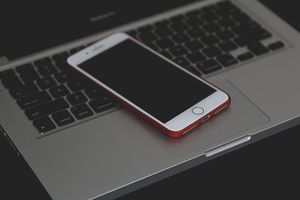Sitting around a dinner table with friends, I started responding to an email. This transgression drew undue attention, and my friend shot his dagger-eyes at me. Pulling his hands in and pushing them out like waves, he said, “disconnect, to reconnect.” While sitting around a dinner table with friends — in a restaurant, nonetheless — feels antiquated in quarantine, the advice has stayed relevant.
Quarantined during a global pandemic, I’m sure that you’ll have no problem finding something to worry about. If you’re anything like me though, you still found plenty of things to worry about in the before-times. This time last month, my biggest fear was that I wouldn’t be able to find a restaurant reservation for my graduation in May. How naive! While a lot of those worries pale in comparison to the problems brought about by the coronavirus outbreak, some stressors seem to carry over.
I have always worried about minimizing screen time. Since high school, I have experienced anti-technology, borderline Luddite instincts — instincts whose origin I do not know and could not explain — directed specifically at my phone. Treating screen time reports like challenges, I would always look to decrease my dependency on the fruits of Steve Jobs’ labor. The results used to be palatable, and I understood the direct correlation between my time spent scrolling on twitter and my screentime report. I had control over the screen time and would shut off notifications as needed.
The coronavirus has complicated these weekly challenges. Gone are the days spent in rooms with classmates and professors, taking notes by hand, laptop shut, phone away. The landscape of our academic environment has taken a turn for the digital, and it’s difficult to peel yourself from the very screens that connect you to the outside world you used to inhabit. My work, school, and social life has moved entirely online.
Last spring, I challenged myself to turn off my phone for an uninterrupted hour every day. I remember that each phone-free hour was always refreshing. Whether I felt like I had cleared my head, or practiced productive studying, I learned the value of deliberate disconnection.
As students of communications, we are taught and trained to stay connected with the world at large. While normally push notifications from news, social media, mail, and messaging apps might seem overwhelming, these apps have taken on an increasingly central role in the time of coronavirus.
It’s important though, to distinguish the point at which our connection to the outside world brings us joy or anxiety. There’s no shame in turning off your phone or deleting an app. For now, disconnecting to reconnect doesn’t apply to dinners out with friends. Now, we can disconnect to reconnect with ourselves, with family, with a nice book. I see the irony if you’re reading this on a laptop or phone, but if my writing hasn’t driven you to unplug yet, maybe now’s the time.
